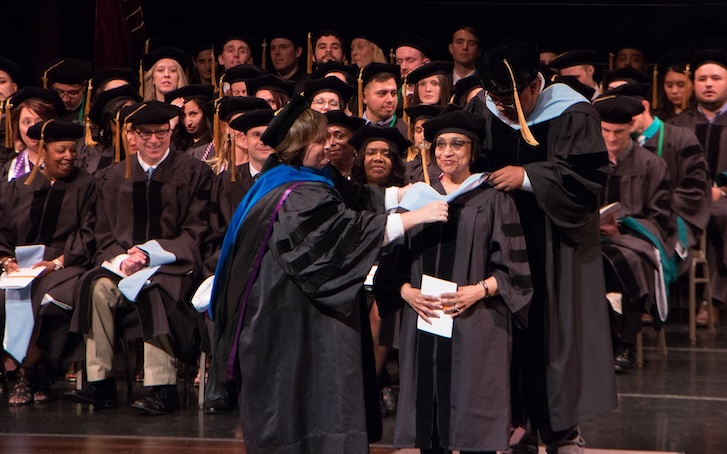For psychology majors at Governors State University, getting involved outside the classroom is one of the best decisions you can make for your academic and professional future. Joining student clubs, participating in research groups, and attending conferences aren’t just résumé builders—they’re experiences that help you stand out when applying to graduate programs and connect you with mentors and peers who share your passion for psychology.
The Psychology Club and Psi Chi International Honor Society at GovState give students the chance to explore the field beyond lectures and exams. Both organizations host workshops, mental health awareness events, and guest speakers who offer insight into careers in psychology. Psi Chi, in particular, recognizes academic excellence and connects students to national grants, scholarships, and research presentation opportunities.
These organizations also sponsor students to attend professional conferences, such as the Midwestern Psychological Association (MPA) conference in Chicago and Governors State University’s annual Research Day, where students can showcase their work to faculty and peers. Presenting at these events demonstrates initiative, professionalism, and intellectual curiosity—qualities that graduate schools value highly.
Faculty research groups: Real-world experience with mentorship
GovState offers several faculty-led research labs that provide students with hands-on experience conducting studies, analyzing data, and presenting findings:
-
Dr. Alli Cipra’s Social Development Lab examines how people grow and interact socially across different stages of life, giving students valuable experience in developmental and social psychology.
-
Dr. Lamise Shawahin’s research group explores mental health and cultural identity in Arab American communities, helping students understand how culture, stigma, and identity intersect in psychological well-being.
-
Dr. Sasha Cervantes’ Cognition Lab studies attention, memory, and cognitive processes, offering students opportunities to investigate how people think, learn, and process information.
-
Dr. Figen Karadogan’s research group focuses on the experience of regret, counterfactual thinking, and the role of emotions in judgment and decision-making, giving students insight into how emotion influences behavior and choices.
These faculty mentors not only provide valuable research experience but also encourage their students to present their findings at conferences or publish their work, which can significantly strengthen graduate school applications.
The university’s Research Assistant Apprenticeship Development (RAAD) Program connects students directly with faculty research opportunities. Through RAAD, students receive formal research training, mentorship, and sometimes funding to attend academic conferences. Participating in RAAD helps students develop the critical thinking, data analysis, and writing skills that graduate schools look for—and it provides a professional foundation that many undergraduates at other institutions don’t get.
Serving as an officer in Psi Chi or the Psychology Club adds another level of experience. Leading meetings, planning events, and mentoring new members shows graduate admissions committees that you’re capable of managing projects and motivating others. Leadership experience also builds confidence, communication, and time management—skills that translate directly into success in graduate school and beyond.
Attending conferences like MPA, APA, or Governors State University Research Day allows students to meet professionals, connect with graduate program representatives, and learn about emerging topics in the field. These trips—often supported by the clubs—create opportunities for students to network, collaborate, and gain exposure to diverse research areas. Many students even find their future graduate advisors through these experiences.
Getting involved in psychology organizations and research at Governors State isn’t just something to add to your résumé—it’s the key to your next chapter. By joining Psi Chi, the Psychology Club, or a faculty research group, you’ll build the academic and professional foundation graduate schools are looking for. From presenting at conferences to working side-by-side with professors, these opportunities prepare you to succeed not only as a student but as a future leader in psychology.

